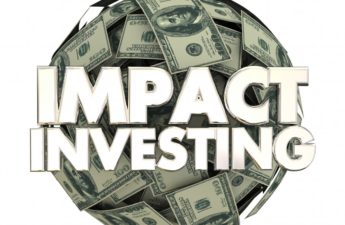Have you ever noticed how an ordinary person or company has one “lucky” random opportunity and then becomes increasingly successful over time, starting with that one opportunity? The success continues for the lucky one as their former peers continue to plod along without much to show. No one could have forecasted the lucky success at the beginning. The recipient of that lucky break is often mediocre. That mediocrity may never disappear but the success continues. As things compound to the extreme, great wealth and prestige may accumulate as a result. What is happening is that the first random success compounds…
Category: Culture and Ethics
Venture Capital and Avoiding Human Bias
Here are some thoughts on Venture Capital or early-stage investing. As readers of my blogs know, Alteris LLC has had professional Venture Capital firms as clients. We have acted as business valuators, but also in the role of “operating partners” to some of these firms. This situation has allowed us to observe best-practices in these early-stage investment firms. Venture Capital and other types of investing is a competitive and often brutal activity. In a typical VC fund, a small number of investments typically account for a large portion of returns. The simple fact is that the majority of investments do…
Three Deadly Sins of Startups
If you have been around the venture capital industry for a while, you will know the “three deadly sins” VCs look to avoid in a potential new early-stage investment. Standard questions VCs ask entrepreneurs often focus on these. You hear this over and over from investment partners at these firms. I’ve worked extensively with an international venture network, and sure enough – it is a focus. Here are the three: 1) The founder (me!) must be the boss, always and forever 2) Too many products, no focus 3) Not enough capital Smart founders know these are hot issues for VC…
Competency Trap or Kill-The-Goose-That-Laid-The-Golden-Egg?
How many successful companies miss out on ultra gigantic opportunities in their industry? ATT had developed some early technology for mobile communications in the 1940s. (Yes, the 1940s). It was difficult to bring to market because of technical hurdles. Rather than continue to research and innovate to overcome these difficulties, ATT gave up and other companies took the market later. Motorola developed some of the first cell phones but also was slow to innovate. They played catch up, succeded with some innovation with the RAZR yet completely lost the market on the death of an influential marketing leader. Xerox was…
Four Pillars to Successful Change Management
Almost all organizations have employees, sub contractors or other types of associates. These are your ‘Colleagues” though their exact role and relationship to the organization will vary. We need to manage and sometimes to engineer organizational change. That’s usually a difficult task and the track record of these transformations is usually not a positive one. Psychologists – academic researchers and others – have developed some ideas on what seems to be some of the more effective ideas on what will work. This model consists of what I call the Four Pillars of Transformation – four things that can be done…
Balance the Positive and the Negative
Early on in my career, I worked with an astonishingly effective salesman. He did exactly what you’d expect such an effective sales professional to do, be enthusiastic, deal well with rejection (when it happened), craft a good succinct story, understand his customer’s needs. One thing he also did is that he looked at the negative. He analyzed the situation and his customer and put it this way “Eliminate every reason why the customer can say No and then he has no reason not to say Yes.” He looked for the obstacles and problems in the situation and determined a solution…
Does Impact (Social Good) Investing Work? Why Not?
Are you skeptical of Social Investing? Does ESG (Environmental, Social and Governance) investing actually create value and achieve the social good it claims? Is investing and managing for the overall Social Good affected by the American business culture? Some may think these questions are controversial. Capital flows continue to flow into ESG oriented funds but these have not performed as well as those that do not have the same investment policy. Note the commentary of none other than Aswath Damodaran, professor of valuations at NYU Stern school of business. On his blog he states: “Companies have come under pressure to…






